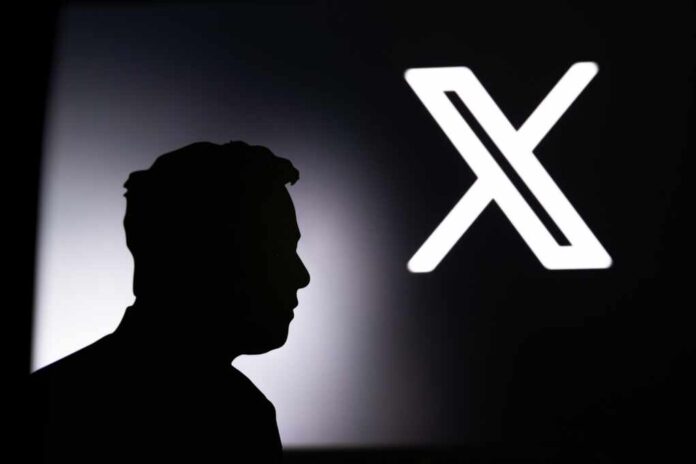
This fall is giving rise to anti-Muskers. You read that right. Media reports are barreling down against Elon Musk over X, a platform they deem to be unsafe because people are actually allowed to express their opinions there.
Musk’s decision to support freedom of speech and level the playing field between users, removing the feeling of an X “elite,” has sparked outrage among the jilted former blue checkmark users. But they’re not the only ones crying. The mainstream media is miffed.
I love this. @elonmusk removed the @nytimes verification badge because they consistently post misleading, false info. They should never be treated as real journalists. They are activists. The @TheBabylonBee is a better source for real info at this point. pic.twitter.com/Epdukmi6X4
— Dave Portnoy (@stoolpresidente) October 20, 2023
The Washington Post lashed out at Musk last week in a piece titled, “A Year Later, Musk’s X is tilting right. And sinking.” The takeaway? Major media outlets can’t stand that X has replaced them.
One year after billionaire Elon Musk bought Twitter, now named X, for $44 billion to revive its business and make it less “woke,” the site’s business outlook appears dire, losing users, advertisers and revenue.https://t.co/lpqDPWYgRd pic.twitter.com/ruQmdZaSbW
— The Washington Post (@washingtonpost) October 27, 2023
Consumers don’t look to WaPo or New York Times for their news. They hop on Twitter and retweet accounts like Jack Posobiec and Inversionism.
Reporters like Will Oremus, Elizabeth Dwoskin, Sarah Ellison, and Jeremy B. Merrill — the four who penned the WaPo piece — have been sidelined by parody accounts and “truthers.”
The New York Times published a smear campaign dressed as news titled, “The Consequences of Elon Musk’s Ownership of X. Steven Lee Myers, Stuart Thompson, and Tiffany Hsu collaborated on the claim Musk has turned X into the “free-for-all hellscape” he said he didn’t want it to be just one year ago.
When Elon Musk bought Twitter a year ago, he said that it “obviously cannot become a free-for-all hellscape.” Here's how the platform now rebranded as X became the kind of site Musk told advertisers he wanted to avoid. https://t.co/22XIlR9VS8
— The New York Times (@nytimes) October 27, 2023
Citing increases in hate speech like racist commentary and antisemitic statements, this trio sought to tell the world Elon Musk is a purveyor of misinformation instead of the arbiter of truth.
Are there posts ranging from Q white rabbits to Project Mockingbird to those dissecting studies linking SIDS top childhood immunizations? Certainly. The problem is — Musk’s definition of misinformation aligns with the right, while the media’s definition is more closely tied to sticking to a very different narrative.
While both WaPo and NYT seem keen on the idea that X isn’t going to be able to hold onto its moderate base as long as it caters to the alleged far-right, they admit X is leading the ranks among social media networks willing to throw out the rulebook and let people have a conversation. Musk is even entertaining expanding to support citizen journalism.
Elon Musk's social media platform, X, might launch a news publishing service called XWire. Musk has been vocal about his support for citizen journalism and his skepticism towards mainstream media. #jionews #xwire #newspublishing #journalism #elonmusk https://t.co/ETnqn07Iui
— JioNews (@JioNews) October 30, 2023
When Musk took ownership of Twitter, he immediately lifted bans on thousands of user accounts that were suspended for sharing content on QAnon, the 2020 election, and Covid.
Critics have claimed he hides behind claims that the platform is non-partisan. But can he really be held accountable for who comes and who goes?
Musk has never pretended to be politically neutral himself. Still, while he criticized mandates and lockdowns during the COVID-19 pandemic, he also rolled up his sleeve three times — two of those instances leaving him with reactions that have left him opting out.
My concern was more the outrageous demand that people *must* take the vaccine and multiple boosters to do anything at all. That was messed up.
Until the Supreme Court invalidated Biden’s exec order, SpaceX and many other companies would have been forced to fire anyone who…
— Elon Musk (@elonmusk) September 26, 2023
His willingness to speak about such landed him in last place on the media’s popularity list. But does that matter anymore? The WaPo and NYT are now X’s direct competitors — and they’re losing their audiences.
POSOBIEC: Elon Musk has turned Twitter into a cluster munition against the Mainstream Media pic.twitter.com/GsgW6J7wuT
— Jack Poso 🇺🇸 (@JackPosobiec) July 16, 2023
So, is it Musk’s fault that X is the Florida of the interwaves today? Like attracts like. People have found their village on X.
Does the mainstream seek to malign Musk as an attempt to shut down the far-right and conservative community’s gathering place — the same way the government shuttered our churches and schools?
Is 2020 really behind us, or isn’t it? That sounds like a post for X.

































